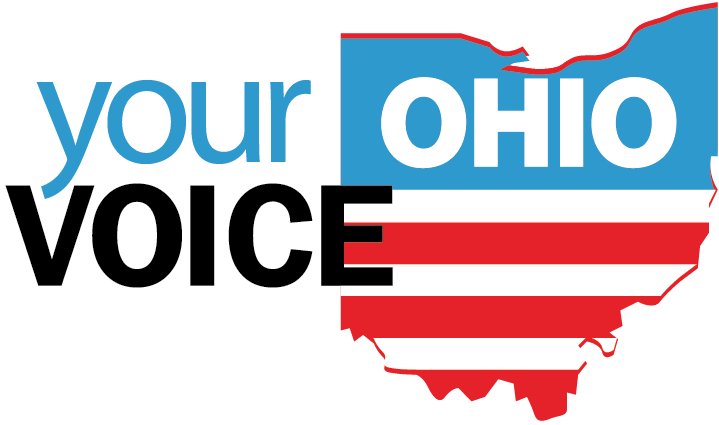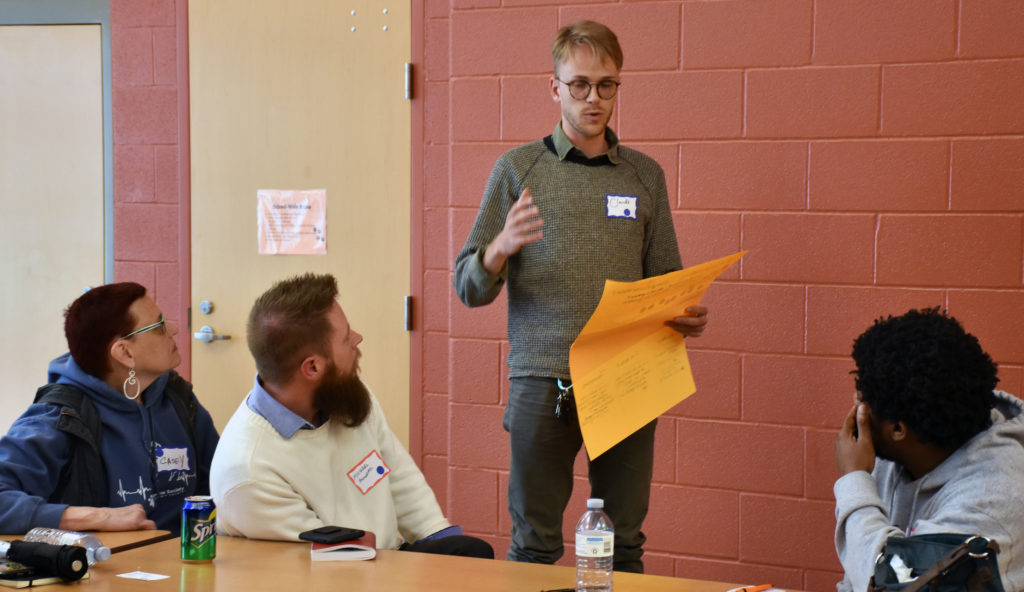As journalists across the state help design and participate in Your Voice Ohio community meetings with the public, they’re redefining engagement from engaging with the community to being with the people. Group conversations go deeper than one-on-one interviews. People share ideas outside of a journalist’s typical sphere of knowledge.
By sitting down with people and participating in conversation as equals, reporters and editors have expressed the following:
- People are able to identify problems and find shared solutions better than most of the leaders and experts journalists routinely cover. “I didn’t know people could get along so well,” one editor said.
- People in leadership often see the needs of the public through their own lenses. Journalists who rely on traditional institutional sources to define their coverage then may be limited to the view of the leaders. As many reporters observed, being with the people illustrates that leaders are often limited in power, wrong or out of touch.
- People are experts in their own right and deserve a voice. For example, we’ve heard people struggling with addiction say they are far more acquainted with their challenges than college-educated bureaucrats and journalists, and they gave us examples of system failures.
- Journalists develop a new understanding of needs that change their perspective on accountability for public officials.
- People are tired of being told what’s wrong with their institutions and their lives. They want journalists to help them find solutions.
- Community meetings allow journalists to ask citizens to design solutions to their own problems. There are multiple benefits:
- Journalists watch people negotiate with others who are different as they attempt to find solutions that work for most people. This relieves the journalist of asking sometimes confrontational questions, as they must in one-on-one interviews, to provoke critical thinking. Likewise, the negotiation often generates creativity that won’t arise from one-dimensional interviews.
- By participating as equals, reporters and editors can contribute to the conversation by sharing their knowledge. This type of information-delivery shows that journalism can be critical to democratic processes.
- By asking citizens to identify solutions in their own language, journalists have a notebook full of information to analyze and report. Moreover, citizens realize that solutions don’t come from government alone and often are empowered by the conversation to define actionable solutions for themselves.





